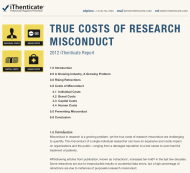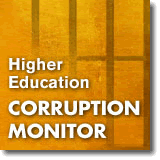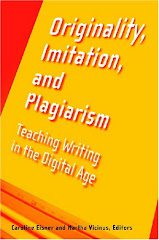Some 34 percent of academic theses in Turkey have high plagiarism rates, according to a report by the Education Policy Research and Application Center (BEPAM) of Istanbul’s Boğaziçi University.
In its study on the “quality of academic writing,” BEPAM examined 600 theses in total, including 470 master’s theses and 130 doctoral theses written between 2007 and 2016, daily Cumhuriyet reported.
Some 477 of these theses were written in public universities, 123 were in private universities, 89 were written in English and 511 were written in Turkish. The researchers used the “Turnitin” plagiarism program and similarity index to examine the theses selected.
The study revealed “heavy plagiarism” in 34 percent of the theses. The rate was 46 percent in private universities and 31 percent in public universities.
Meanwhile, in a similarity index that indicates whether scientific studies are “original,” Turkey’s average was found to be 28.5 percent, compared to a world average of 15 percent. This similarity index rate was 24 percent in English theses and 29 percent in Turkish ones. It was 28 percent in public universities and 31 percent in private universities, showing that theses written in public universities are in a slightly better condition than those written in private universities.
The initial aim of the BEPAM study was not to examine plagiarism rates, but the high number of plagiarized theses led researchers to look more closely.
The number of plagiarized studies in public universities was 150 (31 percent) and 57 (46 percent) in private universities. This number was 173 (36 percent) in master’s theses and 34 (26 percent) in doctoral theses. It was 25 (28 percent) in English theses and 182 (35 percent) in Turkish ones.
Institutions such as Boğaziçi University, the Middle East Technical University (ODTÜ) and Bilkent University provide education in English, and seem to be in a relatively better condition in terms of plagiarism and similarity.
‘Serious ethical issue’
Researcher Dr. Ziya Toprak, who conducted the study, said the results showed that many Turkish students “do not know how to write theses,” while academics do not know how to teach thesis writing.
Toprak noted that there are no Academic Writing Centers at any university in Turkey that see writing as a primary instrument of knowledge production.
“Unfortunately there are serious ethical issues in our country. Certainly, there are many who unknowingly plagiarize. The findings of the research focus mainly on the theses that have high levels of plagiarism, so clearly plagiarism is at serious levels. We are not talking about a few lines or a paragraph. It was done deliberately, indicating a serious ethical issue,” he said.







